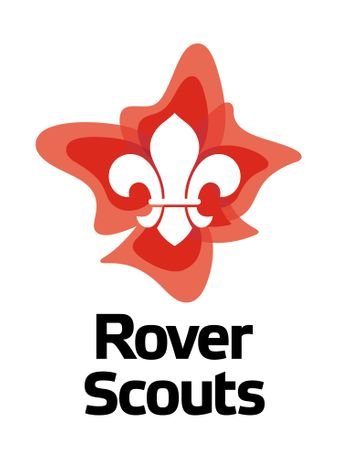About Rovers
Rovers is for males and females aged 18 - 25 who love socialising, challenging themselves and seizing once in a lifetime opportunities.
Rovers are organised into Crews which vary in size from a handful of members to twenty or more. Most Crews meet weekly to enjoy social activities, fun, adventure, and once-in-a-life-time experiences. Rovers are independent and resourceful so every Crew tailors its own activities to the requirements of its members. Each Crew is also responsible for setting its own entry requirements and program goals. A true Rover strives to serve the community, make life-long friends, and seize every available opportunity.
Badges & Awards
The Baden Powell Scout Award
What is the highest youth award in Scouting? No, I’m not talking about the Queen’s Scout Award, that Venturers earn, but the award above the Queen’s Scout – the Baden Powell Scout Award, which can be achieved in the Rover section. The Baden Powell Scout Award is less well known than the Queen’s Scout Award, largely because there are fewer of them awarded. Both awards aim to push the recipients to extend their abilities and develop personal growth. The Governor and Chief Scout of each Branch, as a representative of the Queen, present both awards at Government House.
So how does someone earn the Baden Powell Scout Award? Firstly, as an invested Rover, having undertaken Squire training (based on the theme of Knights, with Squires undertaking training under the guidance of Knights, then being invested as a Knight), the Rover will receive the ‘Rover Skills Badge’. From here the Rover works with their Crew in setting personal challenges. This is where the Baden Powell Scout Award is such a great method for individual development, because no matter what someone’s ability is, there are always opportunities to personally challenge themselves, setting goals and working towards them. This gives rise to a variety of activities that can be undertaken to achieve the Baden Powell Scout Award, and the examples below can hopefully give you an idea of some of the varied interests Rovers have pursued in undertaking this award.
Which Path?
There are two methods that can be taken to obtain this award, Method A or Method B. Method A is a more structured approach, and most popular with Rovers, whilst Method B is more flexible and focuses on the overall development areas of the Scout Association of Physical, Intellectual and Emotional, Social and Spiritual development.
Method A
- Service Badge – This badge incorporates the Rover motto of ‘Service’, where a Rover undertakes some form of service for at least six months. Rovers have taken on roles as Section leaders within Scouting, often following these on for much longer than the initial six-month period. Other examples include helping with Surf Lifesaving, State Emergency Service and the Country Fire Authority.
- Scoutcraft Badge – Here the Rover takes on outdoor skill development, incorporating at least 10 nights under canvas on camps, demonstrating a high standard of Scoutcraft skills. These often involved standing camps, hikes, four-wheel drive trips or even canoeing expeditions.
- Rambler’s Badge – A challenging four-day expedition is required to earn the Rambler’s badge, as well as demonstrating a thorough knowledge of survival techniques and first aid. Examples of Rambles include bushwalking in the Grampians, canoeing down the Murray, a car rally covering thousands of kilometres. One Rover took the extreme challenge of climbing the highest peak in each State of Australia – and did it!
- Project Badge – Possibly the most individual of the badges in Method A is the Project Badge, where a Rover takes on a project which they usually have had little to do with, and aims to produce some form of final product at the end of at least a six month period, demonstrating the new skills they have learnt along the way. Examples include making a quilt, lead lighting, producing a photography folio on Rovers, building a house, writing and performing a musical theatre show and building a computer jukebox.
Method B
- Spiritual Development Badge – This involves the Rover exploring spiritual aspects of life, which may involve an exploration of philosophy, other religions or cultures.
- Intellectual & Emotional Development Badge – This can involve a research project on a particular topic, explore politics, learn to play a musical instrument or write music, or exploration of the various arts.
- Social Development Badge – Exploration of social systems different to what the Rover usually experiences can be good projects for Social Development. For example, the Rover may participate in a conservation group, coaching a sporting team, teaching English to migrant communities.
- Physical Development Badge – An overall fitness regime with specific goals suited to the individual may be a suitable challenge for Physical Development. Alternatively, undertaking an expedition similar to Method A Rambler’s Badge may also be suitable.
As with the other award schemes as a youth member moves through the sections, the Baden Powell Scout Award is tailored to the Rover age group of 18 – 25 year olds.
It is an outstanding achievement for any Rover, as they have set personally challenging goals, worked towards them and achieved them, and have been judged by their peers as reaching a deserving standard and demonstrating that they live a Scouting way of life. For more information check out the Australian Rovers website www.rovers.scouts.com.au
